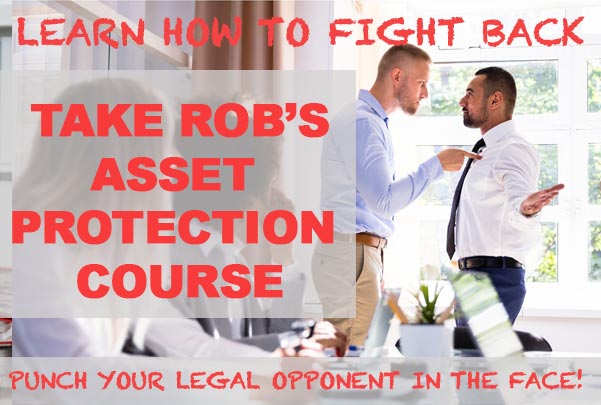The necessity for estate planning
Estate planning is needed in order to avoid dying “intestate.” Dying intestate means that you die without having created either a will or a trust, which will provide instructions for passing your estate onto your heirs. Dying intestate is similar to taking your property and attempting to toss it out to your heirs on the other side of a deep gorge filled with hazards. These hazards, which include (probate, creditors, con artists, lawsuits, judgments, lawyers, and death taxes, can cause damage to the value of your estate.
Whether they are aware of it or not, all property owners have done estate planning for the distribution of their estate to their heirs. Without a will or a trust, the inheritance laws (laws of intestacy) of your state of residence will determine how your property will pass to your heirs. If you have no heirs, the assets will be taken by the state. Often the state’s formula and rules for moving assets to your heirs will not be what you would have chosen if you had taken the time to do some planning.
Getting over Intestate
The best way to get your estate over the intestate gorge is to build a bridge to your heirs, better known as a trust. This provides for the estate to be safely taken over the financial risks posed by probate, creditors, con artists, lawsuits, judgments, lawyers, and death taxes. Here are these financial risks so that you can understand what they are and how you can avoid them.
If you die with any property titled in your personal name, there must be a probate process for that property. Probate is the state’s legal procedure for handling two major functions for your estate: identifying the rightful heirs to the estate and the share size that each will receive and getting the legal title of the property out of your name and into the name of the heirs.
Having a will drawn up prior to your death takes care of the first function, identifying the rightful heirs and their share. If you have no valid will for your estate, the state then uses its own formula to determine who the heirs are and what their shares will be. But even with a will the re-titling of your property still has to be handled through a court administered probate procedure. When someone dies the only way that their property can be legally re-titled in the heirs’ names is by a court order.
Avoiding probate is desirable because it is time-consuming and expensive. Reliable estimates are that on a national average probate cost run from 6% to 10% of the value of the estate. This means that an estate that is worth only $200,000 could cost between $12,000 and $20,000 to probate. These costs are based on the property’s fair market value, not on just the net worth or equity. In some cases, probate ends up in litigation dragging on for years. It frequently leads to family battles and often causes the decedent’s wishes to be ignored. In addition, probate procedures are made public, which can cause a loss of family privacy.
A good way to avoid probate is by using a family estate planning trust, either a living trust or a life estate trust. Thinking of the trust as a bridge, which allows a trustee to carry your assets safely across the intestacy gorge to your heirs on the other side. The way a trust avoids probate is by titling your property in the name of the trust prior to your demise. During your lifetime, you have complete control of the property, however, the trust is considered to be the property’s legal for title transfer purposes.
Upon your death, a trustee preselected by you simply handles the transfers or payments to your specified heirs named in the trust. You also have greater flexibility in specifying the details of these payments and transfers. After you pass on the trustee can handle everything quickly and simply without lawyers, court supervision, excessive costs or delays.

estate planning
-
The necessity for estate planning
- Estate planning fraud
- Estate planning documents
- The Taxable Estate explained
- The Life Estate explained
- Some information on Estate Planning
newsletter signup
[forminator_form id=”1485″]

FIGHTING BACK!
